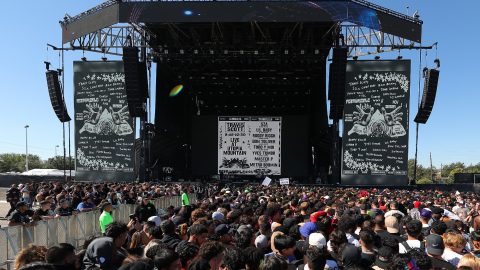
Though they’ve sold an estimated 220 million records and reeled off six consecutive US number ones during their late-’70s imperial phase, the Bee Gees remain rather underrated. This feature-length doc from Hollywood producer and occasional director Frank Marshall (Back to the Future, the Bourne franchise) tells their remarkable story with a smartly drawn arc. It leans heavily into the group’s disco period when their Saturday Night Fever soundtrack album defined the culture, then examines how a toxic backlash nearly derailed their career.
Drawing from a new interview with Barry Gibb plus interviews with his brothers filmed in 1999 – Maurice died in 2003, then Robin passed away in 2012 – Marshall’s film feels definitive and reasonably intimate. It begins by tracing the brothers’ journey back from Australia, where they spent most of their childhoods, to their native UK and breakthrough success with ’60s hits including ‘To Love Somebody’.
- Read more: The story behind the new Bee Gees documentary: “Saturday Night Fever changed their lives forever”
Noel Gallagher, one of several top-tier talking heads, says he was “blown away” when he first heard them and observes: “When you’ve got brothers singing, it’s like an instrument nobody else can buy.” Musical luminaries including Eric Clapton, Mark Ronson and Justin Timberlake pay enthusiastic tribute too: “Sick!” is how Timberlake describes the Gibbs’ vocals. Gallagher is equally illuminating when he offers insights into the pros and cons of being in a massive band with a sibling.
Marshall doesn’t delve too deeply into the Bee Gees’ inter-group beefs, but we do learn that Maurice was the “glue” holding his more combative brothers together. He also confronts the career crossroads that compelled the Bee Gees to reinvent themselves in the mid-70’s. Clapton recalls advising the band to try recording in Miami to refresh their sound, a move which sparked their enormously successful foray into disco with 1975’s ‘Jive Talkin’’.

Two years later their career spiked with the Saturday Night Fever soundtrack, a cultural phenomenon which coincided with disco emerging from the Black and LGBTQ+ underground to become a sound equally popular with suburban couples. At this point, the Gibbs were so omnipotent that younger brother Andy became a solo star with three US number ones of his own. Tragically, he later succumbed to drug addiction and died in 1988 just months after being made an “official” member of the band.
Marshall’s documentary reaches its dramatic crescendo with a crisp analysis of the Disco Sucks movement. Fuelled by latent racism and homophobia, it culminated grimly in 1979 with thousands of white rock fans congregating in a Chicago baseball field to detonate not just crates of disco records, but also records by Black artists working in other genres. House music pioneer Vince Lawrence calls it for what it was: “A racist, homophobic book-burning.”
Marshall includes archive footage of the group trying to distance themselves from disco – an entirely understandable if not exactly noble reaction – before settling into another successful chapter as songwriters for Diana Ross (‘Chain Reaction’) and Dolly Parton (‘Islands In The Stream’).
The film ends poignantly with Barry Gibb admitting he’d swap all the hits for more time with his brothers. By this point, it’s hard to argue with Timberlake’s assessment of the band: “There’s nothing else to say about the Bee Gees except they were fucking awesome.”
Details
- Director: Frank Marshall
- Starring: Barry Gibb, Maurice Gibb, Robin Gibb
- Release date: December 13 (Sky Documentaries), December 14 (DVD and digital download)
The post ‘The Bee Gees: How Can You Mend a Broken Heart’ review: a smart and poignant look at a cultural phenomenon appeared first on NME | Music, Film, TV, Gaming & Pop Culture News.







